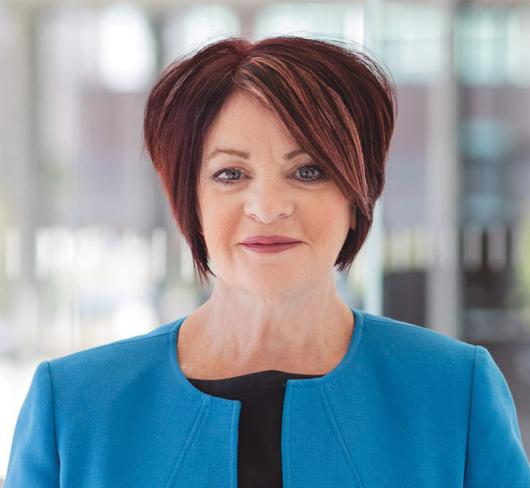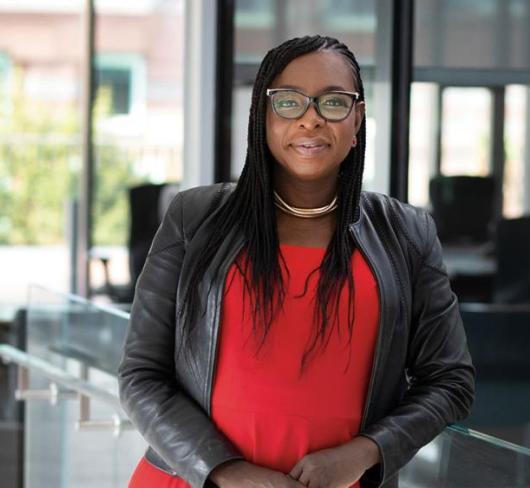Supporting Member in their Equity Work (Equity and Women's Services)
To engage in social justice advocacy and activism we must first acknowledge that inequities exist. To work for equality means that we question why things are they way they are, why some people hold power and others don’t, why some can have their voices heard while others are silenced.
Equity and social justice work demands that we admit to mistakes, misinformation, and misunderstandings. As educators, when we critically examine our ideas and actions and agree to learn from each other, we can establish a collective vision of a more just and equal society. Working for this type of visionary change requires commitment and responsibility from all stakeholders. Addressing these complex issues demands patience, time, and willingness to build our knowledge and skills to seek solutions.
One of ETFO’s goals is to support members as they enhance their education in the area of social justice and equity. In the coming year, members can participate in a variety of programs designed to support their professional development and extend this learning to students.
These include a variety of programs, workshops, and resources:
- ETFO Equity network – members share ideas, provide collegial support
- Professional learning communities – members critically examine their practice, individually and collaboratively build knowledge and skills
- Focus on Ability – this workshop builds awareness and understanding about disability issues
- Occasional Teaching for Today’s Diverse Classrooms – this workshop provides practical suggestions for occasional teachers to address social justice issues while meeting curricular demands
- Beyond the Breakfast Program – teachers explore the stigma of being poor in this workshop.
ETFO’s curriculum resources include:
- Imagine a World that Is Free from Fear – addresses issues relating to homophobia and heterosexism; workshop available
- The Circle of Learning – advises on how to include Aboriginal perspectives in teaching; workshop available
- The Roots of Equality – raises awareness about violence against women
- Take a Closer Look – teaches students to become informed consumers of mass media; workshop available.
“I attended the ETFO Equity and SocialJustice Chair Seminar held on September 28 at Leadership2007. I went in not knowing what I was getting myself into. After talking with a few people and listeningto the discussions and issues that were current, I knew I was in the right place.”
“I found the seminar to be informative. We had the opportunity to work through some terminology anddefinitions that we thought we knew, yet what emerged really demonstrated the complexitiesassociated with social justice endeavours. There were many perspectives to consider.”
“We listened to a great speaker who shared her experiences and knowledge and encouraged us toparticipate in difficult conversations. There were many resources available for us to read, share withcolleagues, and support our learning.”
“What I found extremely exhilarating was that right away I was able to connect with a colleague andbegin to collaborate on planning and presenting an equity event. Together we are organizing aworkshop on poverty. It makes a lot of sense to bring equity representatives together to learn andsupport our vision for a better world.”
“For those of you still reluctant to jump into equity work, I ask you to please consider my example. Thisis my first step and I fully anticipate that there will be challenges along the way. But I feel inspired to take on my part in this work.”
–Andrew Aloe, vice-president, Upper Grand Occasional Teacher Local
“As a teacher, I know a considerable amount about the practical hands-on side of things. I knowhow to follow what is in my heart and express this vision and my goals to colleagues. However, thistype of sharing is sometimes not enough to help me connect with allies.”
“It is important to me that people understand why I am passionate about social justice. I believethat we, as social justice advocates, need to find ways to reach everyone and it is becoming clear tome that having theoretical knowledge can be very helpful. People seem to want facts and figures andmodels and proof of why it is important to have social justice and equity intertwined in all we do. I like the idea of developing the self first, and one of the equity professional development activities that Iattended earlier this year helped me to begin building that foundation. To me, this backgroundtheoretical knowledge is a key area for anyone who works on equity and social justice issues. It canframe the work we do with students, colleagues, and our global community.
“I am very proud of our social justice accomplishments locally. We held a very successful first annualSocial Justice Dinner with Dr. Blye Frank as our speaker. We had an overwhelmingly supportiveresponse from our members and other locals around us. We provided multicultural calendars to newteachers in our local as a gift from the Social Justice Committee to welcome them and remind them ofthe work we do. I am very lucky to be in a supportive local when it comes to equity and social justiceissues. It makes a difference when executive and members alike take on this type of commitment.Social justice work is challenging but watching the positive changes unfold is very rewarding.”
–Sumona Roy, Social Justice Committee chair, Hamilton-Wentworth Elementary Teacher Local; Member, ETFO Human Rights Committee
“My hopes as the chair of Human Rights Committee for the Ottawa-Carleton Elementary Teacher Localare that as a group we can collectively raise awareness about equity and social justice issues that are apriority for ETFO. Since we are a new committee, we can start by taking small steps. Each step countsthough and takes us to a new place. Collaboration is what is needed to confront inequities.”
“Working provincially, I have come to realize that it is important to take the examples set provinciallyto the local level. Committees represent the grassroots voices of our membership and can provide a natural cohesive link for equity and social justice work.”
–Andrea Barker, chair, Human Rights Committee, Ottawa-Carleton Elementary Teacher Local; Chair, ETFO Human Rights Committee

